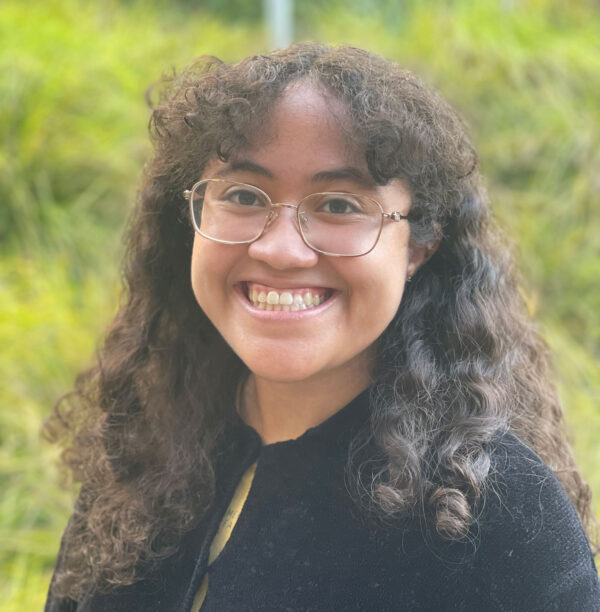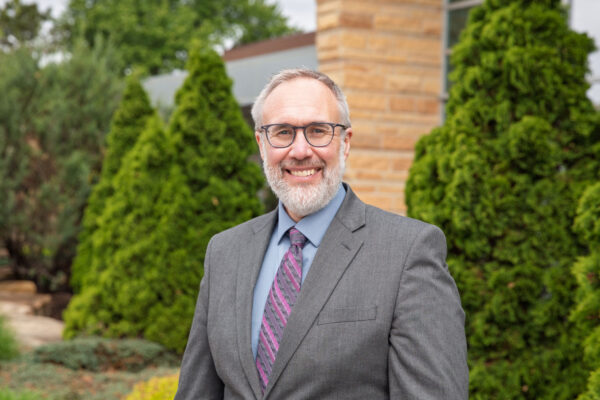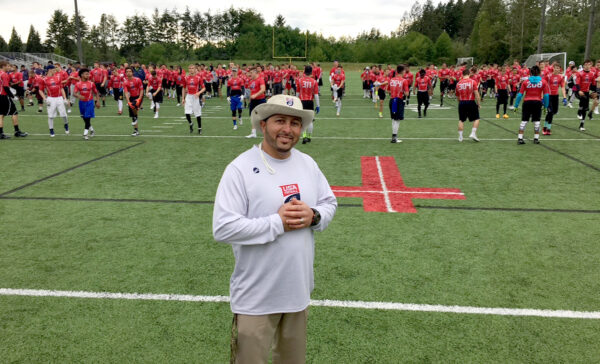From a young age, Jacqueline Richards has had a passion for health and social justice. She grew up in an area of Fresno, California, that was historically redlined, a term that refers to racial discrimination from banks that denied home loans to people of color.
Then, when her mother and father were both diagnosed with chronic illnesses, Richards witnessed their ongoing struggles to receive proper care.
It sparked in her a desire to pursue a career in public health.
“My personal experiences pushed me to continue exploring what public health means,” Richards said. “I think using those experiences and identities that you have in your personal life to fuel you is really important — and those perspectives are needed in the health field.”
In June, Richards graduated from the University of Washington Bothell with a master’s degree in Community Health & Social Justice. From selecting classes to pursuing research opportunities, her experiences were the driving force behind everything she did, including a fellowship with the UW’s Latino Center for Health.
From experience to research
Richards completed her undergraduate studies at the University of California, Berkeley, double majoring in Psychology and in Public Health. When she began looking at graduate school, she was drawn to a new master’s degree at UW Bothell. First launched in autumn 2023, the Community Health & Social Justice program aims to support the urgent need for health professionals who understand the root causes of inequities — and have the education and skills to address them.
“I felt like it was the place for me,” she said. “I was really interested in getting a degree that allows me to pursue health policy where I can increase mental health access for communities of color, and this seemed like a great program for that.”
Richards joined the first cohort and immersed herself in research opportunities during the two-year program. Among the faculty she worked closely with was Dr. Nora Kenworthy, a professor in the School of Nursing & Health Studies.
“One special thing Jacqueline brings to her research with me, and one thing that we share, is a lot of lived experience with family members with disabilities,” Kenworthy said. “That gives her such an intimate understanding of the topics we’re exploring, and I’m always so glad when she brings those perspectives into her work with me.”
With Kenworthy’s support, Richards had the opportunity to serve as the primary author when publishing their research examining the legal difficulties of proving the mental health harm social media has on youth.
Recognized as a future leader
In her second year, Richards was awarded a fellowship with the Latino Center for Health — an interdisciplinary research center established under the UW’s School of Social Work to promote the health and well-being of Latinx individuals, families and communities in Washington. Offered annually, the fellowship is awarded to graduate or professional students who demonstrate a commitment to improving the health of Latinx communities.
Richards was nominated and endorsed by several SNHS faculty members. “I was really excited because I didn’t even know this was an opportunity that was out there,” Richards said. “I’m so glad that the faculty were looking out for me and thought that I was a good fit.”
In addition to a $5,000 award, the program offers opportunities for students to connect with the other fellows in their cohort over their shared goals, identities and experiences. Her cohort included 15 other graduate students in health sciences programs across the campuses of the UW, Heritage University, Eastern Washington University, Washington State University and Western Washington University.
“The fellowship offers students a community of support that is both intellectually and emotionally nourishing,” said Giselle Cárcamo Romero, community engagement specialist for the center. “It helps build the kind of leadership we want to see in health science — equity-driven, compassionate and informed by personal experience.
“Having access to mentors who affirm their identity and academic goals and to a cohort that shares similar lived experiences creates space to step more fully into their voice,” she said.
A UW Bothell alumna herself, Cárcamo Romero added that working with students such as Richards, who have similar backgrounds to her, is one of the most rewarding parts of her job.
The bond of a cohort
“What drew me to the Latino Center for Health was its unwavering commitment to advancing health equity for Latinx communities — work that feels both urgently needed and personally significant to me,” Cárcamo Romero said. “UW Bothell prepared me for this kind of work by encouraging me to think across disciplines, center community voices and view health as a pathway toward liberation.
“That lens continues to guide everything I do at the center.”
Throughout the fellowship, the student cohort met to engage with one another, as well as with guest speakers who shared with them some of the possibilities in their field. For Richards, engaging in these ways was one of the highlights of her graduate experience.
“Being able to know that what we are doing is important and that we have each other to rely on was really cool to me,” she said. “I can get very in my head about what I want to do in my future, and I think that having people who were in the program before me talk about where they are now really helped me get more perspective on what life could be like after I graduated and to know that the opportunities out there are limitless.”
Richards added that it was especially powerful to bond with her peers over their lived experiences and that, like her, many of the students had a personal connection to the field.
“I think a lot of people like me in the program were here because of their past experiences. They resonated with my experiences, and they also showed me different ways to look at mental health,” she said. “I didn’t really know how sharing my story would impact other people or connect me to faculty members, so I think it’s important to be cognizant of the value your background can have.”
“I didn’t even know this was an opportunity that was out there. I’m so glad that the faculty were looking out for me and thought that I was a good fit.”
Jacqueline Richards, Community Health & Social Justice ’25
Primed for future opportunities
Since graduating in June, Richards has returned home to California, but she’s also continued working on research with faculty at UW Bothell. She and Kenworthy are currently wrapping up a community-based, participatory research project that aims to better understand the roles digital technologies play in care for people with chronic illnesses and disabilities.
“I’ve loved working with faculty on research,” she said. “They taught me so much, and they’ve been so patient with me as I’ve been learning new skills. Now, coming out of my graduate program, I feel so passionate about doing research and so much more knowledgeable in my skills — and I really have them to thank.”
Richards said she is looking for career opportunities in community health, education and research that focus on mental health and improving access to care for communities of color.
“I’m incredibly proud of Jacqueline,” Cárcamo Romero said. “I have no doubt she’ll continue to make meaningful contributions in her field. Students like her are the future of this work, and it’s been an honor to accompany her on this part of her journey.”



